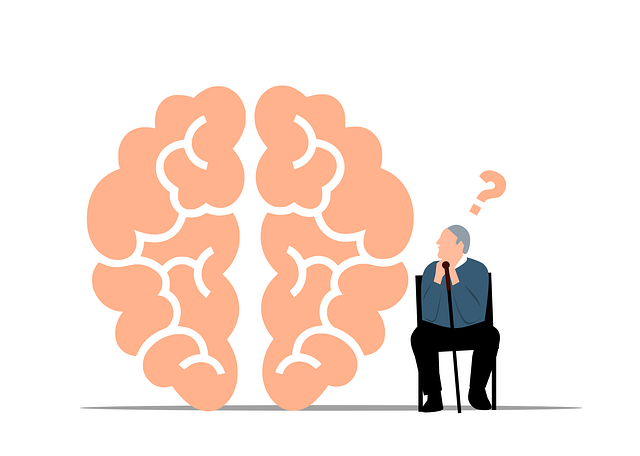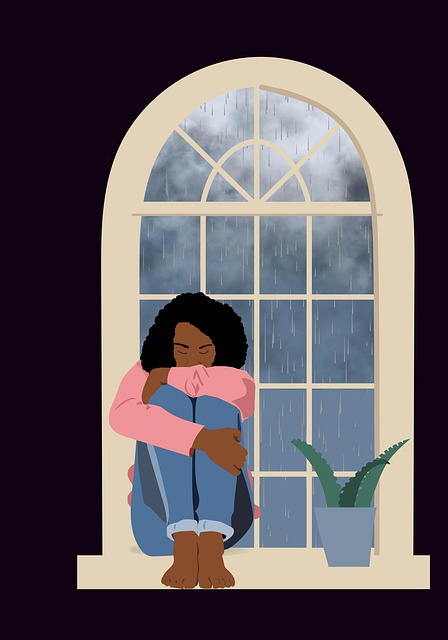Anxiety in young abuse survivors can be effectively managed through specialized Therapy for Young Children Abuse Survivors. This includes strategies like Cognitive Behavioral Therapy (CBT) to address negative thought patterns, mindfulness and relaxation techniques for distress management, and building resilience through various therapeutic approaches. Public awareness about CBT's availability and effectiveness is crucial. Community outreach programs can introduce these techniques to a broader audience, promoting mental well-being. For healthcare providers, communication strategies enhance patient care and reduce burnout, contributing to improved anxiety management and reduced mental illness stigma.
Anxiety in young children, particularly those who have experienced trauma or abuse, requires a sensitive and tailored approach. This article explores effective management techniques that cater specifically to the unique needs of these survivors. We delve into evidence-based therapies like Cognitive Behavioral Therapy (CBT), offering customized strategies for coping. Additionally, we highlight mindfulness practices and relaxation techniques to calm the overactive mind. Building resilience is key; we provide long-term coping mechanisms for a brighter future. Discover these essential tools for empowering young abuse survivors.
- Understanding Anxiety in Young Children: A Sensitized Approach
- Cognitive Behavioral Therapy (CBT): Tailoring for Survivors
- Mindfulness and Relaxation Techniques: Calming the Sensitive Mind
- Building Resilience: Strategies for Long-Term Coping
Understanding Anxiety in Young Children: A Sensitized Approach

Anxiety in young children can stem from various experiences, including trauma or adverse life events. For those who have survived abuse, the impact can be profound and long-lasting if left unaddressed. A sensitive approach is crucial when helping these young minds manage anxiety effectively. Therapy for Young Children Abuse Survivors often involves tailored strategies to build empathy and create a safe, nurturing environment.
Empathy Building Strategies play a pivotal role in this process, allowing therapists to connect with the child on their level, fostering trust and understanding. By implementing Self-Care Practices and encouraging the development of a consistent Self-Care Routine for Better Mental Health, children can learn to regulate their emotions and cope with anxious feelings. Through these methods, they gain tools to navigate challenging situations and build resilience over time.
Cognitive Behavioral Therapy (CBT): Tailoring for Survivors

Cognitive Behavioral Therapy (CBT) has emerged as a powerful tool in the arsenal against anxiety, particularly effective for young children who have survived abuse. This form of therapy focuses on identifying and changing negative thought patterns and behaviors that contribute to anxiety and trauma. By tailoring CBT to meet the unique needs of survivors, therapists can help them develop coping mechanisms tailored to their experiences.
Survivors of child abuse often struggle with intrusive thoughts, flashbacks, and severe anxiety, which can significantly impact their ability to function in daily life. CBT allows them to challenge these distressing thoughts and replace them with more realistic and positive ones. Additionally, CBT encourages the development of a robust self-care routine as part of its process, promoting mental wellness and helping survivors rebuild their lives after trauma. Public awareness campaigns that highlight the availability and effectiveness of CBT for young abuse survivors can play a crucial role in supporting these individuals on their road to recovery.
Mindfulness and Relaxation Techniques: Calming the Sensitive Mind

Anxiety management techniques are especially crucial for young children who have experienced abuse, as they offer a therapeutic path to healing and resilience. Mindfulness and relaxation practices play a pivotal role in calming the sensitive minds of these survivors. By focusing on the present moment and cultivating awareness, children can learn to detach from distressing memories and reduce the intensity of anxiety responses. Techniques such as deep breathing exercises, progressive muscle relaxation, and guided visualizations provide tools to regulate emotional states, fostering a sense of safety and control.
In the context of therapy for young abuse survivors, these mindfulness strategies are often integrated into crisis intervention guidance, helping children to manage acute anxiety episodes. Moreover, community outreach program implementations can introduce these practices to broader audiences, promoting mental well-being across diverse populations. The power of mindfulness lies in its ability to transform suffering into a chance for growth, encouraging a mindset that values self-care and emotional resilience, grounded in the mind over matter principles.
Building Resilience: Strategies for Long-Term Coping

Building resilience is a powerful tool for managing anxiety, especially for those who have experienced trauma such as young children surviving abuse. Therapy plays a pivotal role in this process by providing a safe space to process past experiences and develop coping mechanisms tailored to individual needs. Through various therapeutic approaches, survivors can learn to identify and challenge negative thought patterns, build self-esteem, and enhance their ability to regulate emotions effectively. This long-term strategy not only helps in managing anxiety but also fosters overall mental well-being.
In the context of healthcare providers, burnout prevention strategies are essential for maintaining resilience over time. Communication strategies, such as active listening and empathetic expression, can create supportive environments both within professional settings and between patient and provider. By fostering open dialogue, healthcare professionals can better understand their patients’ needs, offer tailored support, and contribute to Mental Illness Stigma Reduction Efforts, ultimately promoting more effective anxiety management and improved mental health outcomes.
Anxiety management techniques, such as Cognitive Behavioral Therapy (CBT) tailored for abuse survivors and mindfulness practices, offer powerful tools to support young children. By understanding anxiety from a sensitized perspective and building resilience, we can foster long-term coping strategies that profoundly impact their well-being. These approaches not only alleviate immediate symptoms but also empower children to navigate future challenges with increased confidence and emotional fortitude. For survivors of trauma, these therapeutic methods provide a lifeline, enabling them to overcome anxiety and thrive.














